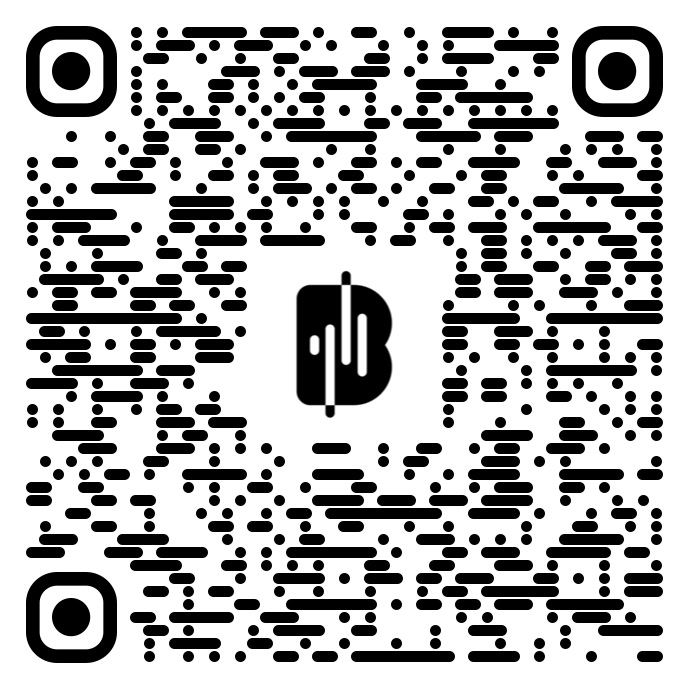English pronunciation can be a real challenge for native Russian speakers and those from Slavic language backgrounds. This is because both languages have their unique histories, sounds, and speech patterns.
For example, the Russian language uses the Cyrillic script which consists of 33 letters and only 6 unique vowel sounds. This is in contrast to the English language, which has just 26 letters but 20 vowel sounds (note: the General American accent features 15 vowel sounds ).
We can liken learning English pronunciation for Russian speakers to an adventure—there are new spellings to learn, phonetics to master, and rules you must follow. However, on your journey to attaining English fluency, you may have encountered setbacks that have slowed your progress or left you at an impasse.
In this comprehensive guide we’ll help you identify and tackle the challenges that Russian speakers like you face while learning American English pronunciation. You’ll also find tips to help you adapt to the nuances of the English language, ease your learning, and ultimately become fully articulate in English.
For an introduction into the unique challenges that Russian speakers face, watch the BoldVoice video below:
VIDEO
Differences between English and Russian Consonants Now let's dive into pronouncing some actual English sounds that you’ll need in everyday communication. There are numerous consonants in English that you need to learn but for now, we’ll show you how to get started with pronouncing the most challenging ones for native Russian speakers.
"R" Sound
English features a distinct "R" sound that isn’t overly expressed, unlike the Russian "R."
In English, we produce the "R" sound further back in the mouth from the throat, with the tongue curled back but not touching anything. To improve your “R” pronunciation, practice saying words with "R" sounds in various positions.
Using the English pronunciation method mentioned here, say words like "raise," "parrot," "razor," "fear," and "treasure.” The English "R" sound can be particularly tricky for Russian speakers because they are accustomed to the rolled or tapped "R" in their language.
Notice how Native Russians pronounce the tapped R sound in this short clip below:
VIDEO
Now watch this deep dive by BoldVoice Coach Eliza into how to make the American English R.
VIDEO
For access to hundreds of targeted American English pronunciation lessons, download the BoldVoice app !
"S" and "Z" Sounds
The English “S” sound comes in variants; we can either pronounce it as the voiceless /s/ or the voiced /z/ depending on its placement in a word.
Russian English learners who aim to master fluent English pronunciation must understand how and when to use both variants. Although the rules are typically straightforward, we apply them in the following ways:
If the "s" letter is at the beginning of words or syllables, native English speakers will make the "S" pronunciation. Think of words like "silly" or "spider." If the "s" letter is between two vowels or after a vowel sound, native speakers will make "Z" sound. Think of words like "rose" or "rise." If the "s" letter is at the end of words, native speakers will make the "S" sound when the word is singular and "Z" sound when the word is pluralized. Think of the words "bus," which makes the "S" sound, and the word "buses," which makes the "Z" sound. English word endings that affect meaning based on the 's' or 'z' sounds, such as plurals, can be especially challenging for Russian speakers who aren't accustomed to this level of sound differentiation influencing meaning.
To master both variants, practice the voiceless "s" sound, as in words like "sea," "snake," or "bus,” without vibrating the vocal cords. Next, practice the voiced "z" sound in words like "birds" or "rose," but this time with vocal cord vibration.
Take your free accent assessment Get to know your pronunciation level and get 7 days of lessons for free on the BoldVoice app.
Start Free Trial
"W" and "V" Sounds
The "W" sound often mistakenly sounds like “V” in English pronunciation for Russian speakers who have not attained English fluency. Native Russian speakers often turn the "W" glide in words like "water" into the "V" fricative "vater” when they speak.
To correct this, practice rounding your lips when pronouncing the "W" sound. The English “W” sound is made when the corners of the lips move towards one another and the lips are rounded. The "V" sound, on the other hand, involves touching your upper lip with your bottom teeth.
The “W” sound can be challenging for Russian and Slavic speakers because of the absence of the English "W" sound in their language. The "W" sound is also very similar to the “V” sound made in Russian, where the lips move toward the teeth.
For a demonstration on how to make the "W" sound, watch the BoldVoice video below.
VIDEO
“L” Sound
The English "dark L" involves a back-of-the-mouth placement of the tongue, which is different from the forward placement of the tongue for the Russian "light L." This change in tongue position makes it challenging for Russian speakers to transition between these "L" sounds effectively.
To achieve the "dark L" sound in American English, place the tip of your tongue against the gum ridge behind the upper teeth. Allow the air to flow around the sides of your tongue while keeping your vocal cords engaged to create the voicing. Do not let the tongue touch the upper front teeth. It's also important to keep the sides of the tongue down to allow air to pass around it.
Check out this video to see the L pronounced close-up.
VIDEO
"J" Sound
The English "J" affricate sound is found in words like "judge" and "jump." You may find this sound tricky because it does not have an equivalent sound in Russian. It also involves a specific tongue and mouth position that can affect English pronunciation for Russian speakers if neglected.
To achieve the English "J" sound (/dʒ/), place the front of your tongue on gum ridge behind your top front teeth. You must also round your lips slightly, but not as much as you would for the "W" sound as described earlier. Next, ensure that your vocal cords vibrate, producing a humming sensation in your throat. Finally, release your tongue from the gum ridge, and let the air out of your mouth.
VIDEO
"th" Sound The "th" sounds (unvoiced /θ/ and voiced /ð/ ) are two of the most challenging for Russian speakers, as these sounds do not occur in their language. Russian and Slavic speakers tend to incorrectly replace the voiced "th" with "T" or "D" and the unvoiced "th" with "Z." For example, "think" becomes "tink," and "this" becomes "zis."
To produce the "th" sounds correctly you must understand the proper tongue placement; your tongue should lightly touch or approach the upper front teeth. Also, ensure the tip of your tongue slightly sticks out between your teeth when pronouncing it. A voiced "th" involves vibration of the vocal cords, whereas an unvoiced "th" does not.
Final Consonants
Russians tend to mute the final consonants in most of their words, featuring voiceless consonants at the end of words. For instance, the word "good" may be pronounced "goot" instead of "gud," with emphasis on the final D as a native English speaker would say.
You may or may not have noticed that as you speak English, you tend to switch consonants that should be voiced to voiceless ones.
Pay attention while speaking English and try to notice when you make this error. You can even try to over-enunciate the final consonants in words, at least while you're still in the adjustment period. By doing so you'll become more conscious of this habit and gradually start adding in the correct final consonant sound, so you can have clearer American English pronunciation.
Comparing English and Russian Vowels English has a larger number of vowel sounds and diphthongs compared to Russian and other Slavic languages. While Russian has only six vowel sounds, the English language has up to twenty unique vowel sounds. This limited number of vowel sounds in your native tongue can make English pronunciation for Russian speakers and Slavic learners difficult as you encounter more strange sounds in English words.
Let's go over some of the most challenging vowel sounds for Russian speakers.
"AA" Sound
To master the "AA" or /æ/ sound, keep your mouth in the "EH" or /ɛ/ sound position and extend your lips. Many people who do not speak English as a first language also struggle to differentiate between the English vowels "AA" and "EH."
VIDEO
VIDEO
For example, in English, the vowel sound "EH" in "pen" changes to "AA" in "pan." However, because the "AA" does not exist in Russian, speakers often substitute the sound with the "EH" sound, pronouncing both words the same way.
Double or Long Vowels
It is rare to find vowel pairs in Slavic dialects because they have a simpler vowel system. Hence, Russian speakers may shorten double vowels when they come across them in English words. This means they would pronounce words like "door" as "dur" or "pour" as "por."
To properly pronounce double vowels, practice pronouncing each sound individually and then combining them in a transition. Take the example given above– "pour." To pronounce the word "pour," say both the "O" and "U" sounds separately. when practicing these sounds can be exaggerated, but they should flow naturally as one long sound when used in natural conversation.
Diphthongs
A diphthong is a slide between two vowel sounds, for instance, the /ai/ sound in the word “like.”
A common Russian pronunciation of the word "like" might be close to the phonetic [lajk]. Instead, an American speaker would slide from the “a” to the “ih” sound, as in [laik]. However, like double vowels, the slide from the first to the second vowel in a diphthong must happen without a noticeable pause.
To succeed at this, it is important that you can identify diphthongs and the sounds they connote. More examples of diphthongs to look out for include:
"ai" or /aɪ/ in words like "ride," "sky," and "night." "EY" or /eɪ/ in words like "cake," "rain," and "make." "OH" or /oʊ/ in words such as "go," "home," and "boat." "OW" or /aʊ/ in words like "out," "town," and "loud." "OY" or /ɔɪ/ in words like "boy," "coin," and "enjoy."
"i" Spelling
Because English spelling is unreliable, when you see an "i" spelling it is not necessarily pronounced the same way. Two options of pronunciation are "EE" and "IH", the former being a longer vowel and the latter a shorter one.
Being able to pronounce "EE" and "IH" differently is a key skill that Russian native speakers struggle with. This can manifest itself in the difference between the words “fill” and “feel”, which are often pronounced interchangeably by Russian speakers. Clarity with these sound pronunciation will greatly help in avoiding any potential misunderstandings.
How to Learn English Pronunciation as Russian Speakers
The key to articulating English pronunciation for Russian speakers is learning and practicing English the right way. Here are a few tips to help you get started on mastering all of the sounds you’ve learned in this guide.
Master Word Stress
Russian and Slavic languages have a unique stress pattern which contrasts that of the English language.
For example, the Russian language generally has a monotonous or flat intonation. This means that statements asking questions, expressing excitement, or indicating surprise may all sound the same. This can lead to misunderstandings when Russian and Slavic speakers try to speak English.
On the contrary, native English speakers are flexible, having mastered which syllables in a word need to be stressed and which need to be clipped. This is because, in English, word stress sometimes determines the true meaning of a word. This, in turn, is responsible for the rhythm of their speech. You can test your English speech stress pattern on the BoldVoice app to see where you've got it right and where you might have some work to do.
How you choose to stress sounds contributes to how you sound when you speak in English. So you must be flexible enough to tilt away from the more monotonic stress patterns of the Russian and Slavic languages, and embrace the English pattern.
Also, make it a point to consciously observe the stress sounds in random words you use and encounter in everyday communication.
VIDEO
Set Milestones
Decide what you want to achieve in the long term and break down your learning into milestones . For example, you can choose to focus on learning a couple of sounds at a time or even work on mastering stress patterns first.
Either way, do not forget to celebrate your achievements to help you maintain motivation.
Practice Listening
Perfecting English pronunciation for Russian speakers involves feeding yourself with the right knowledge by developing your listening skills.
To develop your listening skills, watch English-language TV shows and movies , and listen to music or podcasts . As you do this, try to find materials with subtitles to help you follow. Listening doesn't always have to be boring, as you can always find something that interests you.
Seek Feedback
If possible, get feedback from native English speakers or language pronunciation experts to correct pronunciation, grammar, and usage. You can also participate in one-on-one coaching lessons where you can interact with accent experts and receive personalized feedback.
This will not only help you measure progress but will also ensure you are accountable for your learning.
Self-Evaluation Exercises
As you seek feedback, do not forget to evaluate yourself to help you build confidence. There are many ways that you can evaluate yourself on your own. You may record yourself while pronouncing words and listen to the recording for errors in your speech.
Another method is to watch yourself in the mirror while speaking to see if you have the correct mouth movement.
Stay Consistent
Dedicate a specific amount of time each day to practice and study. You may also create a language learning routine that fits your schedule.
More importantly, stick to your schedule, be patient with yourself, and keep a positive attitude.
Master English Pronunciation with BoldVoice Like other non-native speakers who have mastered excellent command of English, fluent English pronunciation for Russian speakers is achievable. By focusing on the distinct sounds, practicing regularly, and seeking resources to improve your pronunciation, you can build clear and effective spoken English skills.
As you progress you'll find that the more you expose yourself to spoken English, the more confident you'll become in your pronunciation. This ultimately helps you achieve your goal of communicating clearly in English at work or in social gatherings.
For guidance, you can trust all-in-one solution platforms like BoldVoice to support and challenge you as you learn. The BoldVoice app encompasses communicating with advanced AI as you would with native speakers, while providing real-time feedback on your learning progress as well as lessons from Hollywood coaching experts.
Now, it’s time to get to work learning! Download the BoldVoice app and get started with your free 7-day trial.









